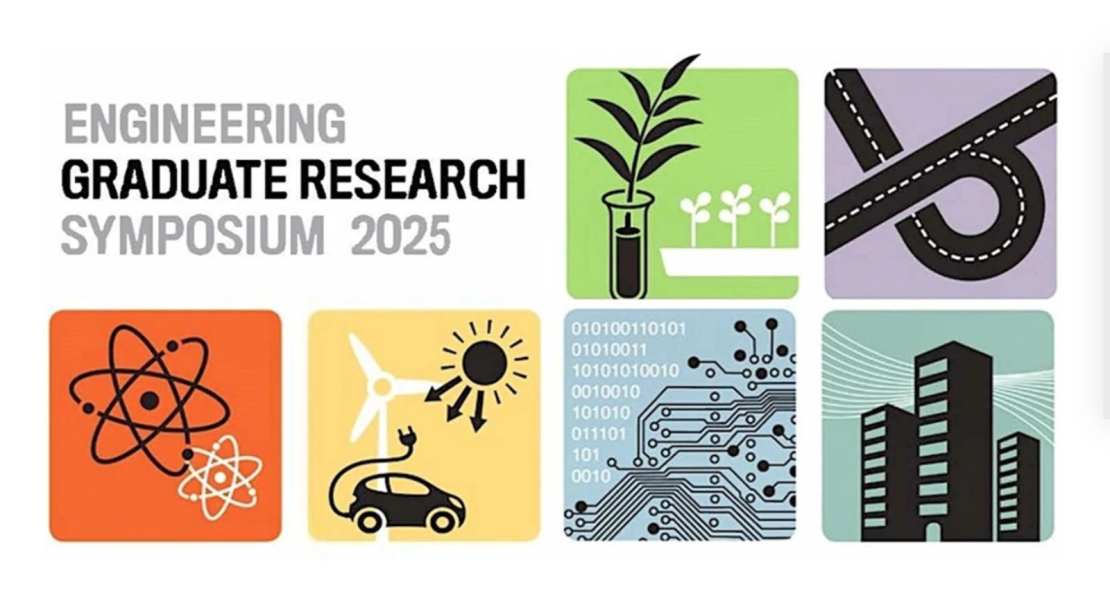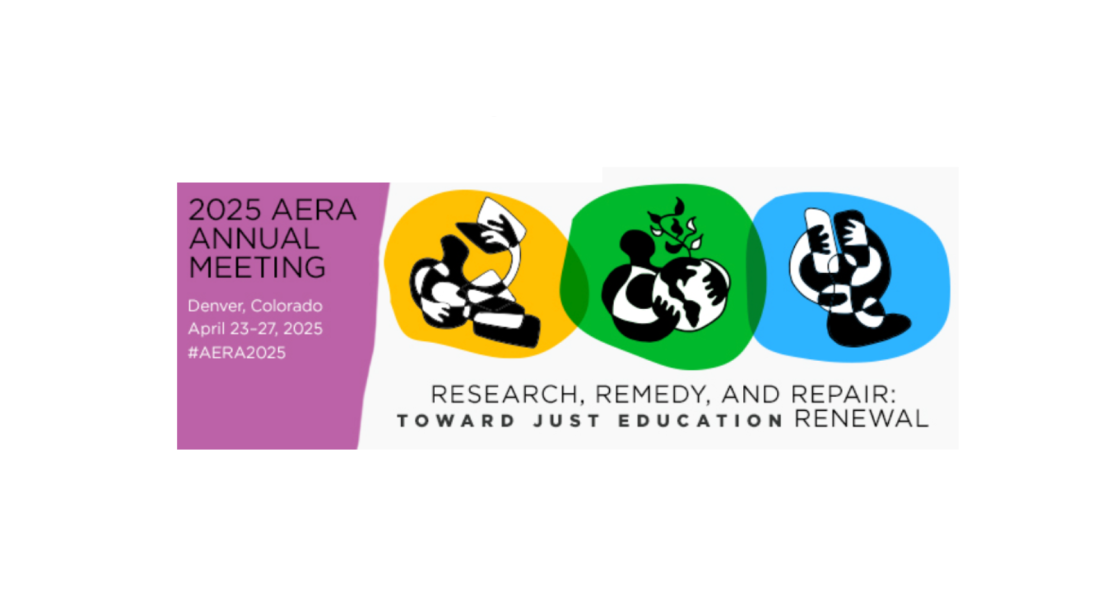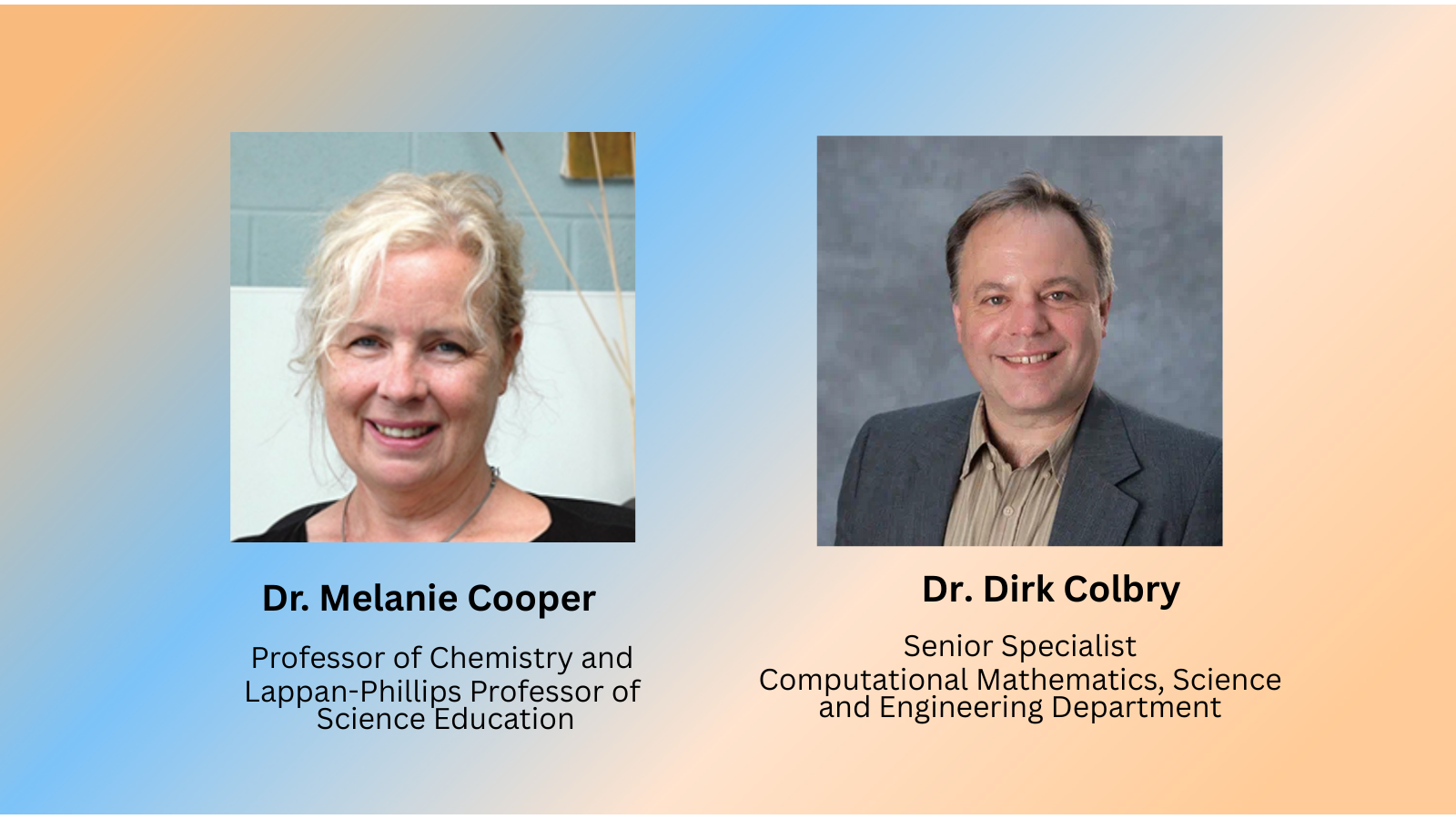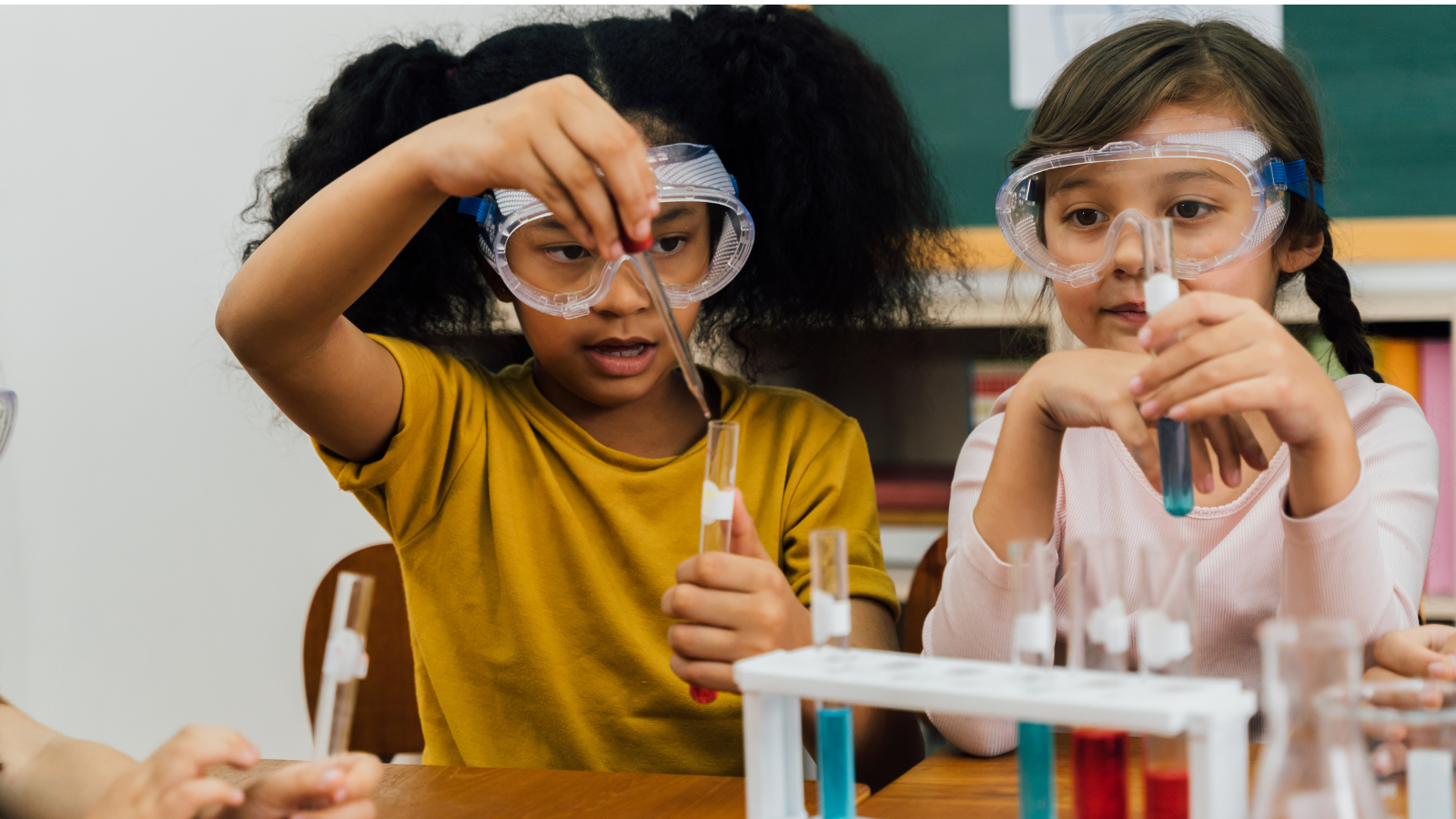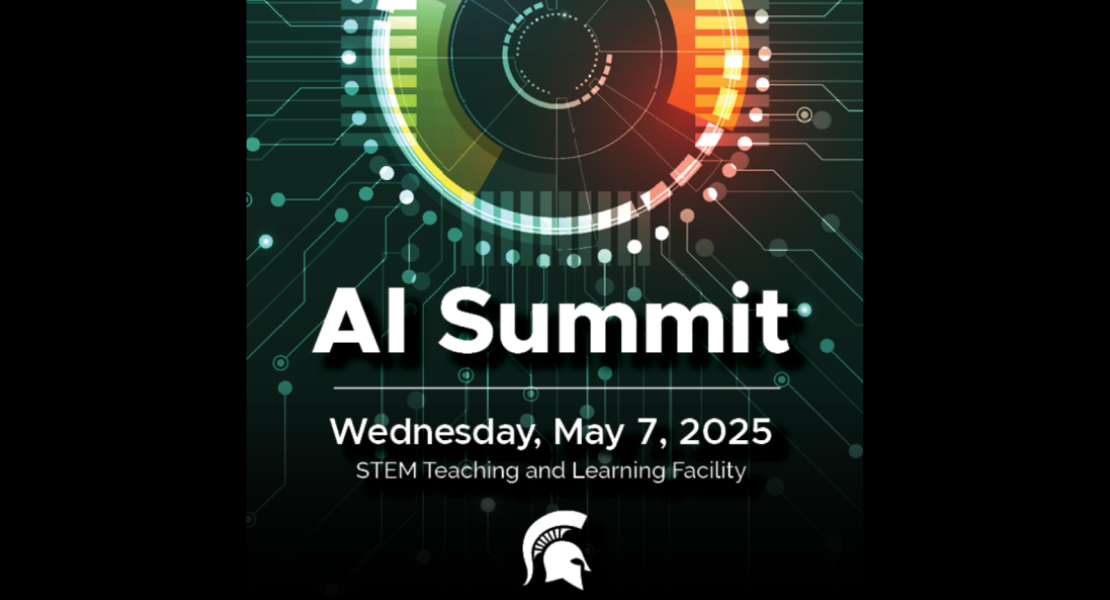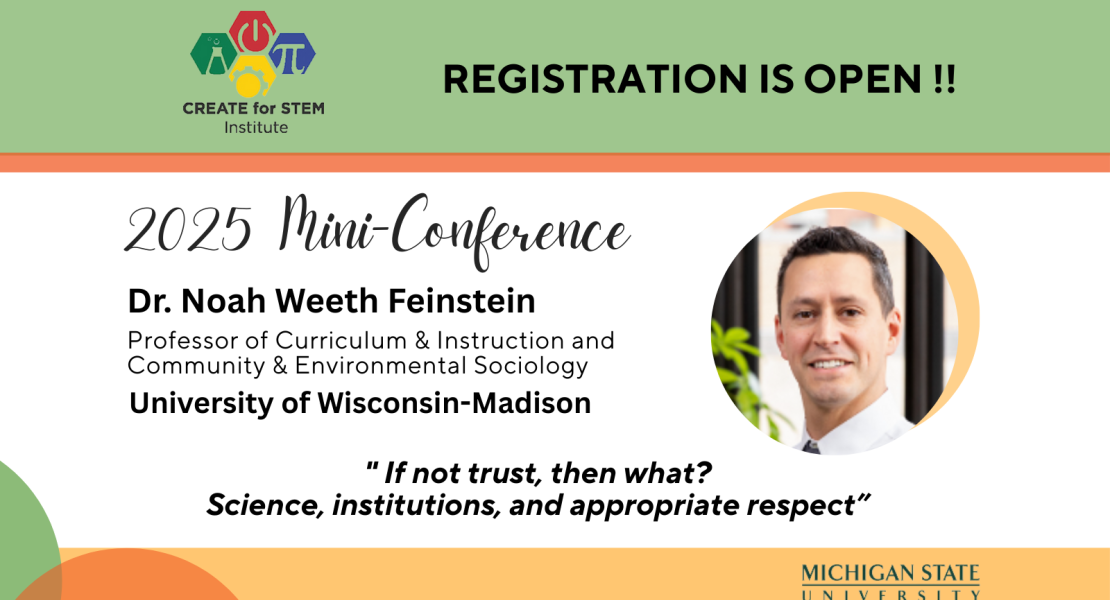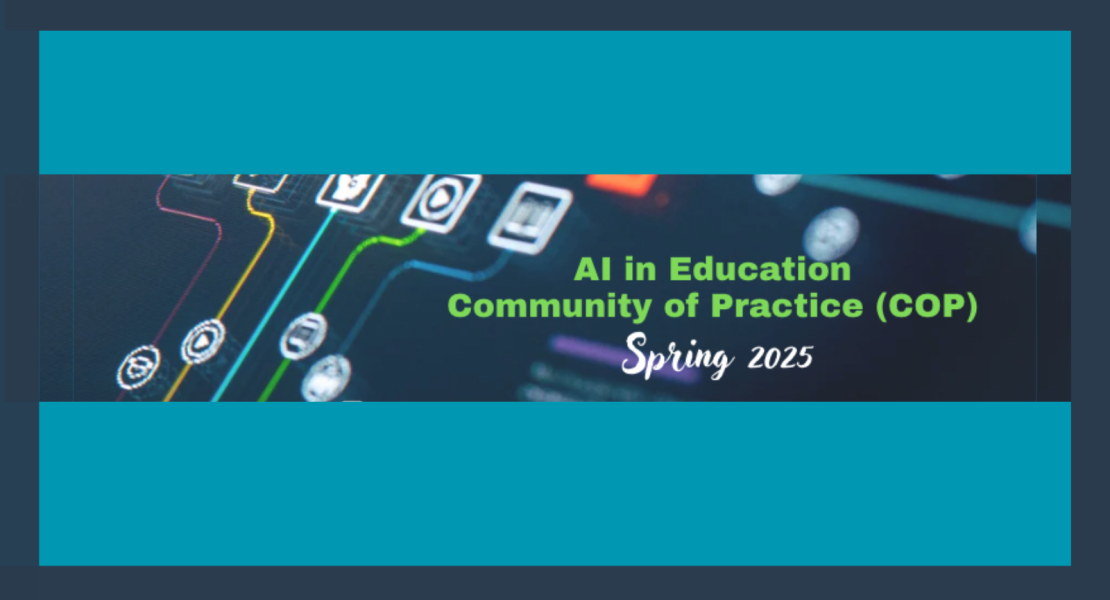
Feed
CREATE at AERA 2025 in Denver, CO
CREATE SEED grant funds outdoor science instruction project
College of Natural Science embraces generative AI tools
$10M Grant Awarded to Advance Science Education in Rural South
Kara Haas
Kara L. Haas is an educator, researcher, and doctoral student in curriculum, instruction (CITE) and science education at MSU. She is the K-12 partnership coordinator for the KBS Long-Term Ecological Research program, an NSF-funded broader impacts program that brings K-12 teachers and scientists together to improve environmental literacy. She has a B.S. in biology from Hope College and a master’s in the practice of teaching: early childhood education from Western Michigan University.
MSU Ethics Institute AI Summit, May 7, 2025
Mark your calendars for the MSU AI Summit on Wednesday, May 7, 2025, in the STEM Teaching and Learning Facility. This event will bring together faculty, staff, librarians, and graduate students across disciplines to shape MSU’s role in AI education, research, and everyday use. Registration opens soon, and all members of the university community are welcome.
CREATE Mini Conference 2025
Please join us at CREATE's 10th Mini Conference on Wednesday, May 14, 2025. We will be at the MSU STEM building for the third year and are grateful to be able to utilize this wonderful space for our program.
It will be a different format this year (TBA), but we're planning on one poster session, a keynote from Dr. Noah Weeth Feinstein, a panel response to his talk, and as in the past, lunch will be provided.
AI in Education Community of Practice (COP)
The AI in Education Community of Practice (CoP) is a three-part discussion series exploring the evolving role of artificial intelligence in teaching, research, and higher education policy.
Li, T., Adah Miller, E., Simani, M. C., & Krajcik, J. (2024). Adapting scientific modeling practice for promoting elementary students’ productive disciplinary engagement. International Journal of Science Education, 1–35. https://doi.org/10.1080/09500693.2
Li, T., Adah Miller, E., Simani, M. C., & Krajcik, J. (2024). Adapting scientific modeling practice for promoting elementary students’ productive disciplinary engagement. International Journal of Science Education, 1–35. https://doi.org/10.1080/09500693.2024.2361488

